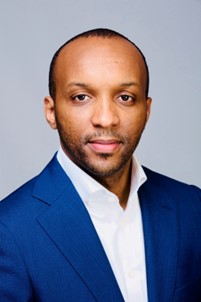Regions
AfricaMamadou Fall Kane is a nonresident senior fellow at the Atlantic Council’s Africa Center. He also is the deputy secretary of Senegal’s Strategic Orientation Committee for the Oil & Gas, a committee created by the president to strengthen the management of natural resources following Senegal’s accession to the Extractive Industries Transparency Initiatives. He has served in that role since November 2016.
In addition to his duties as deputy secretary, he was energy advisor to the Senegalese president from 2016 to 2024. He was also in charge of the first wind farm project in West Africa, the Taiba Ndiaye wind farm, and he also led other solar power plant projects, such as one at Bokhol in northern Senegal.
In 2017, the Senegalese president entrusted him with the negotiation of an intergovernmental cooperation agreement on the Greater Tortue Ahmeyim (GTA) gas field shared with Mauritania, for which he heads the Senegalese delegation. He has also led and coordinated the development of the Sangomar oil and GTA gas fields, which represent investments of fourteen billion dollars.
Kane was in charge of the development of state policy on local content in oil, gas, and mining, and the management of revenues from oil and gas exploitation, bolstering Senegal’s natural resources governance. He also set up the National Institute of Oil and Gas in 2017, the first training center in Senegal for the country’s engineers, researchers, and energy professionals.
Prior to that position, Kane joined the office of Senegalese President Macky Sall in December 2012 as the advisor to the president in charge of economics, finances, and investments, gaining valuable experience at the Directorate General of Treasury at the French Ministry of Economics and Finances on issues of financing the economy and industrial restructuring. He also gained experience at the World Bank and the investment banking branch of the Credit Agricole Corporate and Investment Banking in Paris.
He is often consulted by media organizations (such as the Financial Times, the New York Times, the Washington Post, Le Monde, Le Figaro, the Economist, and Jeune Afrique) on African perspectives on global geopolitics, energy, and development finance.
He graduated from Sciences Po Paris before completing his education at Ecole Polytechnique of Paris in economics and public policy. He also holds an executive master’s degree in management and finance in innovation from the University of Berkeley, California.
